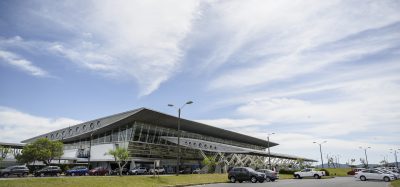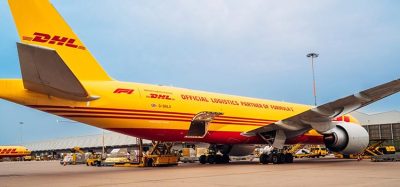UK government announces competition to encourage development of sustainable aviation fuel
- Like
- Digg
- Del
- Tumblr
- VKontakte
- Buffer
- Love This
- Odnoklassniki
- Meneame
- Blogger
- Amazon
- Yahoo Mail
- Gmail
- AOL
- Newsvine
- HackerNews
- Evernote
- MySpace
- Mail.ru
- Viadeo
- Line
- Comments
- Yummly
- SMS
- Viber
- Telegram
- Subscribe
- Skype
- Facebook Messenger
- Kakao
- LiveJournal
- Yammer
- Edgar
- Fintel
- Mix
- Instapaper
- Copy Link
Posted: 16 March 2021 | International Airport Review | No comments yet
UK companies will be able to bid for a share of £15 million to pioneer new technologies to convert everyday waste into sustainable aviation fuel.


Net-zero emission aviation is now one step closer following the launch of a new competition by the UK government to support the development of cutting-edge facilities that are capable of turning everyday waste into jet fuel.
The Green Fuel, Green Skies competition will support UK companies as they pioneer new technologies to convert household rubbish, waste wood and excess electricity into sustainable aviation fuel (SAF).
Offering emissions savings of more than 70 per cent compared to conventional jet fuel, these trailblazing projects will help to put flying onto a more sustainable path while helping to create up to 11,500 jobs over the coming decades.
Companies will be able to bid for a share of £15 million to kickstart the development of first-of-a-kind production plants in the UK to produce these fuels at scale.
This comes as the UK government’s second Jet Zero Council meeting was attended by its new CEO, Emma Gilthorpe, Chief Operating Officer at London Heathrow Airport (LHR). Promoting the vision of the group, Gilthorpe will increase its reach with key stakeholders across the sector, helping to drive forward the decarbonisation of aviation.
Joining the distinguished roster of industry and environmental experts within the Jet Zero Council, new additions from the Royal Air Force (RAF) and the UK Civil Aviation Authority (CAA) will bring a breadth of knowledge and experience to the Council, energising the charge to reduce emissions and deliver clean growth in the sector.
The UK’s Transport Secretary, Grant Shapps, said: “As the aviation sector emerges out of the pandemic and looks towards recovery over the coming months, we must put our environmental commitments at the centre of everything we do – so not only do we build back better, we also build back greener. That’s why we’re stepping up our work on the Council, recruiting new members and launching pioneering efforts to ensure that we continue to lead the world by example and deliver on our ambitious net-zero targets.”
Kwasi Kwarteng, the UK’s Business Secretary, said: “Today’s meeting of the Jet Zero Council demonstrates the vital collaboration between government and industry that will make zero-emission flights a reality. Britain’s aerospace sector is at the centre of our plans to build back greener from the pandemic. We are committed to supporting its recovery and investing in green tech to take us closer to zero carbon take-off.”
Through the Future Flight Challenge, the UK government has committed £125 million of funding over four years. This has been matched by £175 million from the industry to develop greener ways to fly – such as all-electric aircraft and deliveries by drone – by advancing electric and autonomous flight technologies.
Responding to the announcement, the Chair of Sustainable Aviation, Adam Morton, said: “This funding is a positive step closer to getting a British sustainable aviation fuel industry off the ground. SAF technology is available now, can cut aviation carbon emissions by at least 70 per cent compared with fossil fuels and requires no modifications to existing aircraft or refuelling infrastructure. These new fuels can also be produced throughout the UK, creating tens of thousands of green jobs and generating billions of pounds for our economy in our industrial heartlands.”
“But if the UK is serious about becoming a world leader in SAF production and supply, the government must accelerate its support for this nascent industry by complementing this funding with the right policies to support the commercialisation of SAF at scale, as Sustainable Aviation has set out. With a world leading SAF industry, and innovations in electric and hydrogen aircraft, Britain can become a Jet Zero pioneer,” he added.
Related topics
Aircraft, Emissions, Sustainability, Sustainable Aviation Fuel (SAF), Sustainable development
Related airports
Related organisations
Civil Aviation Authority (CAA), Royal Air Force (RAF), Sustainable Aviation, UK Government
















